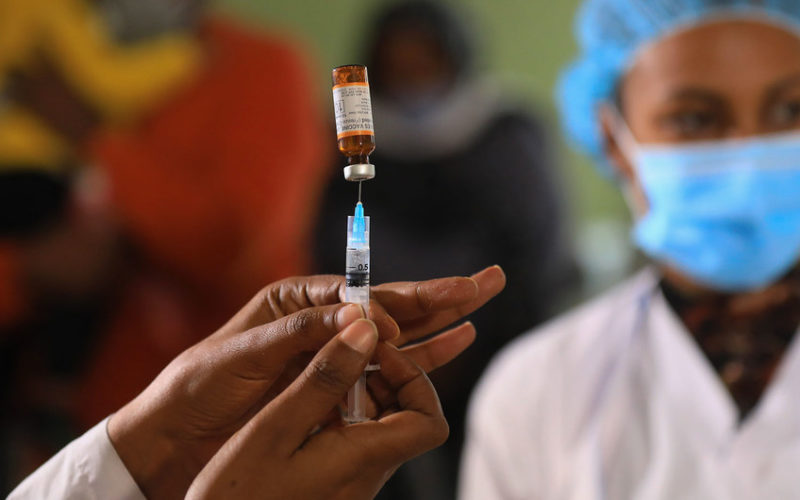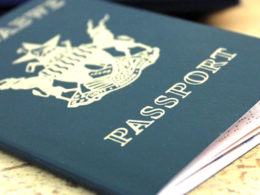People have raised questions on why the Covid-19 vaccines were developed faster than the Human Immunodeficiency Virus (HIV) vaccines which have taken over 40 years to develop.
While vaccine development is an arduous process, which can take up about 10-15 years on average to accomplish.
However, through Operation Warp Speed – a collaboration between the US government and a partnership between the Departments of Health and Human Services (HHS) and Defense (DOD), a Covid-19 vaccine was developed in less than a year.
Speaking during a zoom meeting on the Imbokodo vaccine trial, Imbokodo Principal Researcher Dr Portia Hunidzarira explained that in comparison to other viruses, HIV does not have any model of cure.
“If we look at Covid-19 itself, there are so many people who got Covid-19 infection but some of them just recovered without any major intervention whatsoever, some had asymptomatic covid-19 infection were able to recover. So, there are models of the cure for other diseases but we don’t have any model of cure whereby someone got infected with HIV and they were able to heal by themselves without any intervention,” said Dr Hunidzarira.
She said due to that, it becomes difficult for scientists to replicate something that has not happened naturally, “for us to have the comparison in terms of what we can develop because we have seen it already, so it means we are trying to do something we have never seen before.”
“When a person gets HIV, we know that for HIV to replicate in the body, it has to attach itself to the host Deoxyribonucleic Acid (DNA) and instruct that host DNA to now produce more copies of the HIV, so because of that, that made HIV unique in the sense that it’s now able to integrate itself to the host and become one of the hosts and make more copies of itself and the host, so for you to tackle such a virus that’s also challenging in itself,” said Dr. Hunidzarira.
She added that another mechanism of HIV is that it destroys the body’s immune system making it difficult for the body to be able to defend itself from any infection.
“We all know that for a vaccine to work, the vaccine has to also use the same immune system to teach your body to fight against any infection, so the HIV needs to destroy the very same thing that would also need to create an effective vaccine,” she said.
Dr Hunidzarira added, “So, these four major factors are what are making HIV vaccine development take this long, thus why it’s over 40 years but we are still trying to work on getting the HIV vaccine will work but we are still very hopeful because we have had some studies that showed hope.
Meanwhile, the Health Desk Experts said scientists are working tirelessly to develop an HIV vaccine.
“The National Health Institute (NIH) invests in multiple research efforts towards this endeavour, for example, there is an ongoing multinational vaccine clinical trial called the Mosaico. The Mosaico clinical trial is being conducted in North and South America and Europe. It tests the safety and efficacy of HIV vaccine regimens among men who have sex with men, bisexual men, and transgender women. The results of this trial are expected in 2022 to 2023,” said the Experts.
The experts said there are several reasons why the production of HIV vaccines is taking longer than ones for other viruses such as SARS-COV-2.
“HIV is a more difficult organism to make a vaccine against. These are some of the specifics around why it’s hard to make an HIV vaccine: HIV infects people by integrating itself into existing cells in our bodies. Since it latches onto our bodies, it’s invisible to our immune system. It’s hard to design a vaccine smart enough to target a virus disguised as our cells,” they said.
In addition, the experts said for the Covid-19 virus, the immune system reacts to one component: the spike protein while there is not a similar component of HIV that can be targeted the same way.
“HIV also has way more variants and more capacity to mutate than SARS-COV-2, making it harder to target with a vaccine. The COVID-19 vaccines were also developed under massive international collaboration, with unprecedented funding, and built off of existing ongoing research into vaccines for coronaviruses,” said the Health Desk Experts.
Background: The Health Desk Experts said as of July 2021, there were eight Covid-19 vaccines approved for use and about 30 more undergoing efficacy testing. There have been seven efficacy trials of an HIV vaccine in the past 20 years of HIV vaccine research, and no approved HIV vaccine yet. In addition, only one of these seven vaccines gave a (weak) signal of efficacy. Currently, there is one ongoing clinical trial, the Mosaico, which will assess whether the vaccine regimen designed to induce immune responses against a variety of global HIV strains can.
SARS-CoV-2 is a member of the coronavirus family. According to the National Institute of Allergy and Infectious Diseases Trusted Source, there are hundreds of coronaviruses — including four that can cause the common cold, as well as the coronaviruses that sparked the SARS, or severe acute respiratory syndrome, epidemic in 2002 and the emergence of MERS, or Middle East respiratory syndrome, in 2012.








